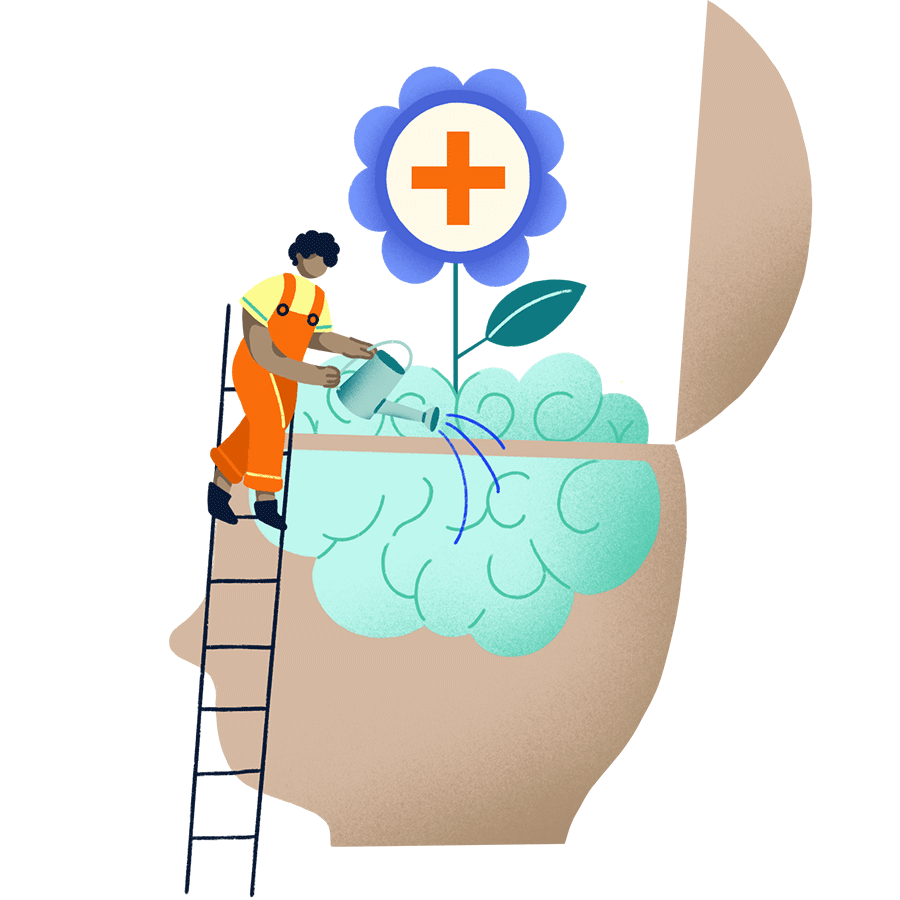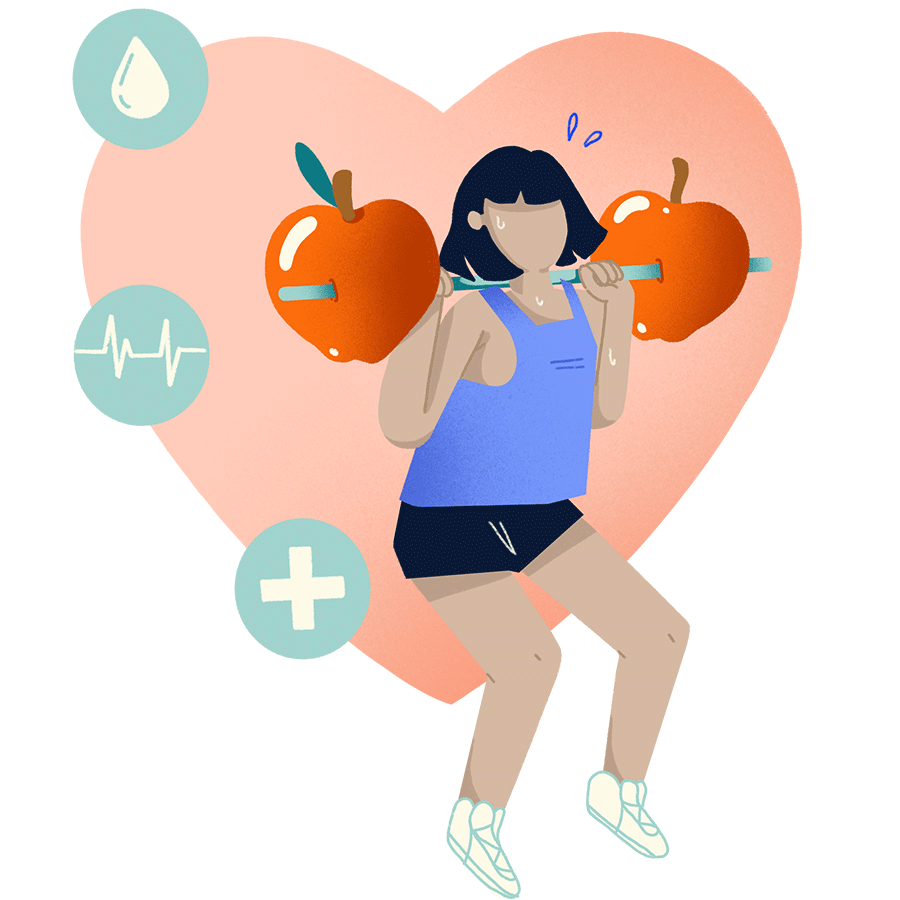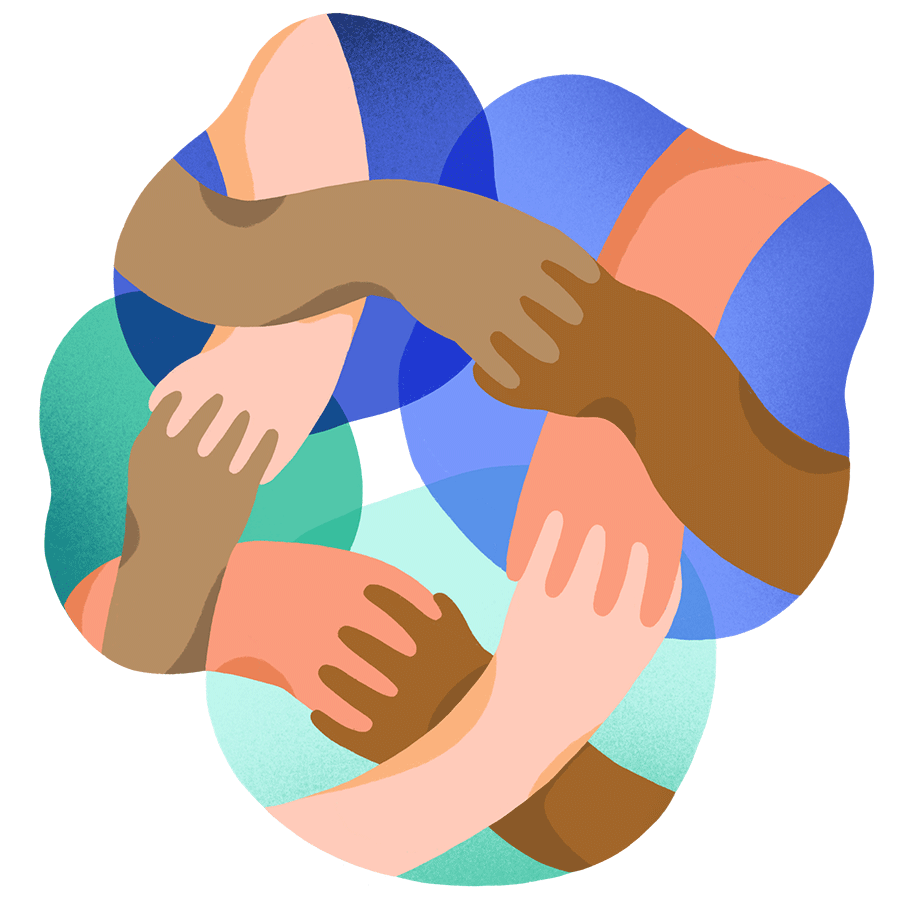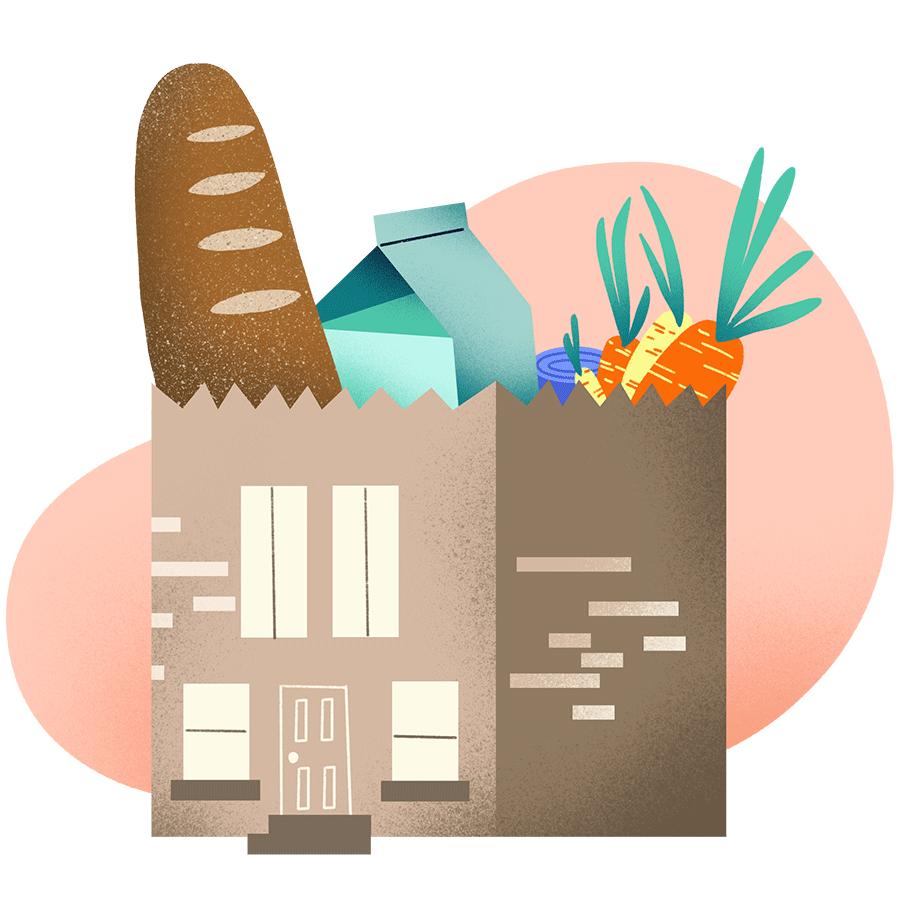STEP 2
Understand the Six Dimensions of Health
From the Health and Wellbeing Monitor, our community identified six key dimensions that work together to enhance health and improve quality of life. A spirit of learning and growth in each of these dimensions is important if we are to feel fulfilled and whole as individuals and communities. Within the pages of MyLiveWell360, you can learn more about each of these dimensions, write about and better understand your wellbeing, make a plan to enhance one or more areas of your life, and connect with resources to support your goals.
Start by learning about the Six Dimensions of Health below to identify areas of your life you might like to improve and to get some ideas on how to begin. Then, continue on to create your personal well-being plan!
JUMP TO STEP 3: FIND YOUR WHY →

Mental, Emotional and Spiritual Health
Recognizing your own, and others, emotions while being able to respond appropriately. The ability to cultivate positive thoughts, practice compassion, express healthy emotions, and engage in vital support systems helps improve our lives in enormous ways.
A strong sense of spirituality provides important benefits to health. Spirituality often gives us a sense of meaning and purpose which helps guide our life decisions and offers a sense of direction that provides comfort during life’s challenges.
What Can You Do?
Facilitate warm connections with others and maximize opportunities to express gratitude, self-compassion, mindfulness. Seek out resources to support healthy coping skills, recovery and resiliency.
Helpful Links to Learn More:
Mental Health and Substance Use
- Depression and Suicide (save.org)
- Deal with Anxiety and Fear (U of MN)
- Mental Health Toolkit (HelpGuide)
- MentalHealth.gov
- National Institute of Mental Health
- NAMI Hotline (National Institute of Mental Health)
- Reachout.com
- Substance Abuse and Mental Health Services (SAMHSA)
- Work2BeWell for youth, parents, schools (Providence)
Mindfulness, Gratitude & Resiliency

Neighborhood and Environment
Being in nature not only makes you feel better emotionally, it contributes to your physical wellbeing—it soothes, restores and connects. People who live near parks and natural areas are more physically active and live longer. These open spaces often draw people together, enhancing social connections.
What Can You Do?
Be a steward of our natural environment and nurture time spent outdoors – connecting with the mystery of larger world, brings perceptive, beauty, and positive mood.
Helpful Links to Learn More:

Physical Health
Diet, exercise, sleep and stress have a profound effect on disease conditions and well-being. Physical health also includes; hygiene routines, use of tobacco, alcohol and other drugs, the use of personal protective gear, following safety guidelines, not taking unnecessary risks, and the wise use of healthcare resources— including regular checkups and recommended screenings.
What Can You Do?
Be a self-care master. Seek out credible information, connect to resources and people that can support you. Build personal environments that support safety, health, and a positive social life. Remember to put on your own ‘oxygen mask’ first!
Helpful Links to Learn More:
General and Family Health
- General Family Health (Washington State DOH)
- Health Topics A to Z – Center for Disease Control
- Healthy You: Free Tip Sheets – English and Spanish (Nation’s Health /American Public Health Association)
Activity/Nutrition/Sleep
- Adult Preventative Health (U.S. Preventative Services Task Force)
- Adult Dental/Oral Health (American Dental Association)
- Fruit and Vegetable (U.S. Dept. of Agriculture)
- My Plate Start Simple (Centers for Disease Control)
- Physical Activity (Centers for Disease Control)
- Sleep (Centers for Disease Control)
Health Conditions
- Cancer (Medicine Plus)
- American Cancer Society
- Diabetes (Center for Disease Control)
- Pre-Diabetes Assessment (Center for Disease Control)
- American Heart Association
- Heart Disease and Stroke (Center for Disease Control)
- High Blood Pressure (Center for Disease Control)

Relationships & Social Connections
Healthy relationships are vital to health. Strong family ties, friendships and partnerships can increase our sense of meaning, self-esteem, belonging and provide a buffer against stress, anxiety and depression. Lack of social connection can lead to declines in physical and mental health.
Create strong communities that support and care for each member. From an ethical and population health perspective, we must understand that health is relative and that the strength of a community is only as good as the health of its least healthy member.
What Can You Do?
Take the time and energy to build healthy relationships. Join a class, start a club, or volunteer in your community as often as possible. Limit screen time and schedule in person social events – invite a friend to lunch perhaps.
Strive to foster trust and vulnerability where you can share your interests, connect and empathize with others. Advocate for fair and equitable systems of practice.
Helpful Links to Learn More:

Security and Basic Needs
Having enough to live comfortably and have freedom from worry. We all need enough money for food, rent or mortgage, health care, medical bills and basic expenses of daily living. Getting to a point in our lives were we can afford enough for ourselves and our loved ones will take a lot of work, but is an important part of our well-being.
What Can You Do?
Be a self advocate and build confidence – look for opportunities, resources or training to help meet basic needs, financial stability, and support for your long term goals.

Work, Learning and Growth
Using available resources to develop and create opportunities that contribute to your unique gifts, skills, and talents adds to your sense of meaning and purpose, and helps you remain active and involved throughout life. A career which is consistent with your personal values, interests, and beliefs while balancing both work and play contributes greatly to all the dimensions of well-being.
What Can You Do?
Facilitate life-long learning and offer opportunities to boost confidence, purpose, skills and connect with others.
